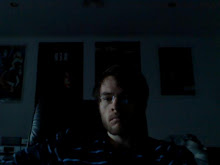or, Question for an Ethicist
I’d never given Bennett much thought. Having never read him, to me he was tea-cosy, Establishment. I knew he’d done a successful play about sixth-formers applying to Oxbridge, Talking Heads, that ancient and originary revue Beyond the Fringe; but I’d never seen any of it. Imagine therefore my surprise:
2 August. Chris Langham is found guilty of downloading child pornography, and remanded for sentencing next month, having been told to expect jail. To imprison someone for looking at or making a copy of something makes me uneasy, even though, as in this case, the facts are not in dispute. And not merely with pornography. Last month some Muslim young men were imprisoned for, among other things, looking at or having in their possession a handbook with bomb-making instructions. That makes me uneasy too. Looking is not doing however much a police-led morality would like to equate the two, and would like the public to equate them also. Repellent though child pornography is, I don’t find Mr Langham’s conduct especially repugnant and am only grateful when I read about such cases that my own inclinations don’t take me down that route. I don’t know Chris Langham but I find the policy of targeting such high-profile figures deplorable, the relish with which they are pursued in the tabloid press chilling. I hope that Mr Langham gets a short sentence and that he will not become the pariah the authorities would like, and that the BBC, not in these days noted for its courage, will shortly re-employ him.
This is from his diary-like piece (‘-like’ because it is written with a view to publication, so without the filth) in the year-end LRB, ‘What I Didn’t Do in 2007’. And I’m grateful for it. Seldom are polemical ideas put across with such relaxed eloquence, and concision. It makes a nice foil to the commentarian’s hot head — even if Mr Bennett misses that Mr Langham was doing more than looking. I’ve always found the argument iffy that in viewing child-pornographic images a paedophile partakes of abuse (about as iffy as the one that says that in so doing he defuses his desire). But the argument that in paying for it, which is I believe what Langham did and how a police-led morality was able catch up on its work of judgement, the paedophile subsidises abuse, is hard to demur to. What’s morally difficult here and what I’d thank Mr Bennett for bringing up is just this question of inclination. For wouldn’t the ‘chilling’ tabloids have us accept that — looking and doing aside — being attracted to children, on top of its repellence and repugnance, is immoral? How far can we say it is? This is the crux. Ought the discoveries of science, my ignorance of which I’ll confess straight up, if they suggest that as with hetero- or homosexuality paedophilia is more a matter of gravity (Bennett’s suppositious ‘inclinations’) than a ‘route’ which is chosen, to form our moral opinions here? I don’t know.
Bennett’s shtick is deflation. He is quick to concede he mightn’t look eminent through another’s eyes, that what claims to exception he might be allowed are anyway low-profile. He traipses places.
7 July. The same week as I traipsed across North Yorkshire the Guardian has a piece by Terry Eagleton saying that of all the eminent writers and playwrights only Pinter continues radical and untainted by the Establishment. I’m not sure if this means that in Eagleton’s view I don’t qualify because of my absence of eminence or because such protests as I take part in are too sporadic and low-profile to be noticed. Either way if I had email I could send him or the Guardian a one-word message: ‘Ahem.’
He raises the possibilities of eminence and of radicalism, only to withhold their assertion with a swift ‘Either way’, to make do with the shy, unradical ‘Ahem’, and its English tone of apology. Yet he is a famous, rich dramatist and a bestselling writer of prose. Would he be either of those things if he bellowed his radicalism like Pinter? If he boasted eminence? The reason his shtick works can only be that Bennett's conviction of radicalism is real: we assent to it when we find the act funny. If behind the traipsing and Ahemming was an English potterer of confused politics, the writing would merely be feeble. Bennett’s ‘Ahem’, in its careful comedy, both assumes and avows his radicalism. I smiled.




No comments:
Post a Comment